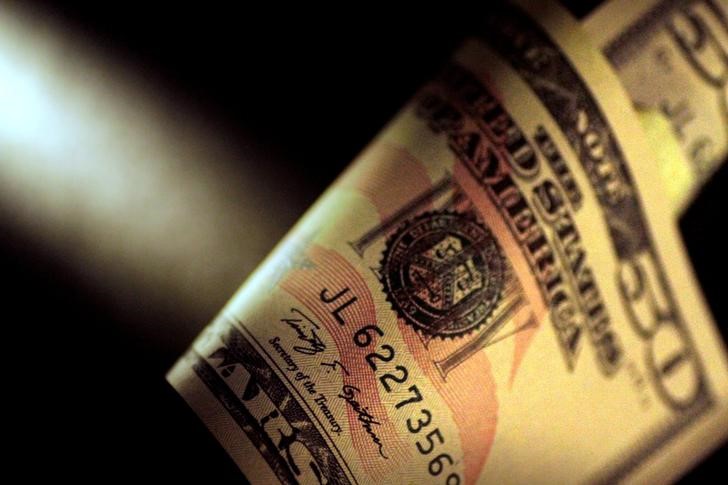© Reuters.
Investing.com – The U.S. dollar gained in early European trade Tuesday, with this safe haven in demand as a rate cut by China’s central bank failed to assuage investor concerns over slowing economic growth.
At 01:55 ET (05:55 GMT), the , which tracks the greenback against a basket of six other currencies, traded 0.3% higher to 102.118, rebounding from its recent one-month low.
PBOC cuts benchmark loan prime rate
China’s central bank, the , cut its benchmark loan prime rate by 10 basis points earlier Tuesday, a move that had been widely telegraphed as Beijing struggles to shore up a slowing economic recovery.
However, this size of the rate decrease disappointed some who fretted that this would not be enough to shore up confidence, with the Chinese property sector particularly hard hit.
rose 0.2% to 7.1769, with the yuan trading just shy of its lowest level since late November, with traders looking for a wider stimulus package from Chinese authorities but receiving a lack of concrete measures from a cabinet meeting on Friday.
Powell to testify to Congress this week
The dollar is also receiving something of a boost Tuesday ahead of an upcoming testimony by Federal Reserve Chair before Congress, starting on Wednesday.
The U.S. Federal Reserve paused its year-long rate-hiking cycle last week to assess its impact on inflation and the country’s economic outlook, but also hinted at the likelihood of further rate increases ahead.
Traders are looking at Powell’s testimony–to the House Financial Service Committee on Wednesday and the Senate Banking Committee on Thursday–for cues on U.S. monetary policy, amid caution over the possibility that he may signal a July rate increase is on the cards.
U.S. economic data due Tuesday include and for May, while FOMC member is also scheduled to speak.
Euro remains firm; ECB debates further hikes
Elsewhere, traded largely flat at 1.0922, remaining close to a one-month peak as ECB officials spar over the need for more interest rate hikes going forward to continue the battle against .
The raised interest rates by 25 basis points on Thursday, to the highest level in 22 years, and largely penciled in another increase in borrowing costs in July.
The ECB’s chief economist stated on Monday that it was too soon to commit to another hike in September, but a number of his colleagues have already expressed the view that underlying inflation remains stubbornly high and more tightening is needed.
Bank of England to hike once more
fell 0.1% to 1.2783, but remains near 14-month highs with traders fully expecting the to raise its benchmark interest rate to 4.75% from 4.5% on Thursday, the highest rate since 2008.
Wednesday sees the release of the number for May, and this is expected to confirm that inflation in the U.K. remains the highest in the G7, more than four times the central bank’s 2% medium-term target.
“While there is little doubt that the BOE will increase interest rates on Thursday, there will be lots of views on the size of the hike and the policy guidance for what follows — as standalone, and in combination,” Mohamed El-Erian, the chairman of Gramercy Funds, said in a tweet on Monday.
Elsewhere, the risk-sensitive fell 0.7% to 0.6803, while traded largely unchanged at 142.01.


